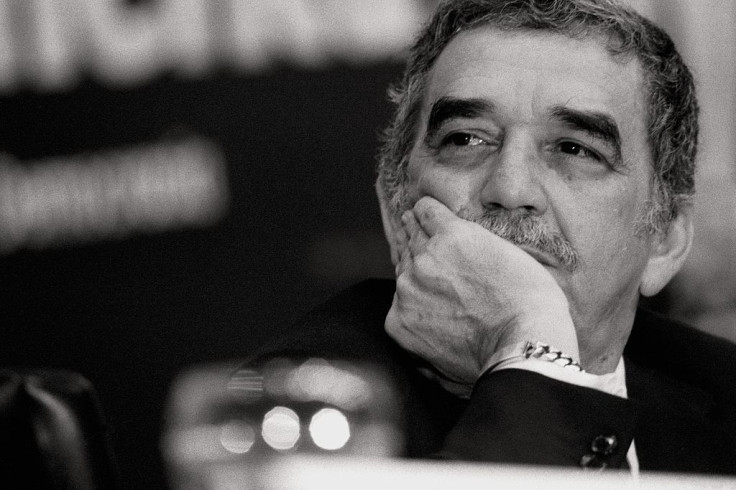
One Hundred Years of Solitude, the classic written by Colombian Nobel Prize winner Gabriel Garcia Marquez, has been captivating Japanese audiences this Summer more than 50 years after the first translation into the language was first published.
The new "bunko" pocket-size paperback edition, a Japanese word to describe books designed to be affordable and portable, sold 290,000 copies in eight weeks. Shinchosha Publishing Co. released the latest iteration of the book on June 26, ranking number 2 in the company's best sellers and retailing for ¥1,375 -- approximately $8.50 USD.
The release just before a 16-episode Netflix's adaptation of the literary classic, set to air in late 2024.
This edition features a breathtaking encyclopedia-style cover by acclaimed, Tokyo based illustrator and graphic designer Ryuto Miyake, who has led advertising campaigns for brands such as Gucci, Bottega Veneta, and Apple.
Another add-on is an intricate reading guide written by Natsuki Ikezawa that breaks down for the audience the complex storyline and tangled dynamics of the Buendia's Family.
Ikezawa is a reputed Japanese author and self-titled "promoter of Latin American literature in Japan." He has said that "without García Márquez, he would never have paid attention to Latin American literature" and credited the One Hundred Years of Solitude as an inspiration to write his own novel The Navidad Incident: The Downfall of Matias Guili.
The first launch of the Japanese version in 1972, translated by Tadashi Tsuzumi, included a mere 4,000 copies. Before this revival, the publishing house had sold around 300,000 copies.
Tsuzumi's translation attempted to illustrate the world of Macondo by adding Japanese onomatopoeia, for the description of sounds and sensations or emotional states. This layer is not available in the original version of the story.
Garcia Marquez spoke about the difficulty of translating two worlds apart, during his only visit to Tokio in 1990.
"Many years ago, when I was young and handsome, I visited Paris. I saw a Japanese man for the first time in my life. He seemed so remote and inscrutable that I asked a Chilean friend who accompanied me, "What the devil is this man doing so far from home?" "The same as us," my friend said. "Paris is as far from Tokyo as it is from Buenos Aires." I learned that day that the longest and most difficult distances are not geographical, but cultural," he said during his speech for the Japan Foundation's Latin American Film Festival.
According to Ryo Kikuchi, the publisher's editor in charge of the new edition, the 10-year anniversary of the Laureate's passing was the main reason to revisit Garcia Marquez's most important work.
"It's the duty of publishers to make sure the works of authors continue to be read and live on even posthumously," Kikuchi told the Japanese journal The Mainichi. "Hopefully the hurdle will be lowered by making it available in paperback."
© 2024 Latin Times. All rights reserved. Do not reproduce without permission.









